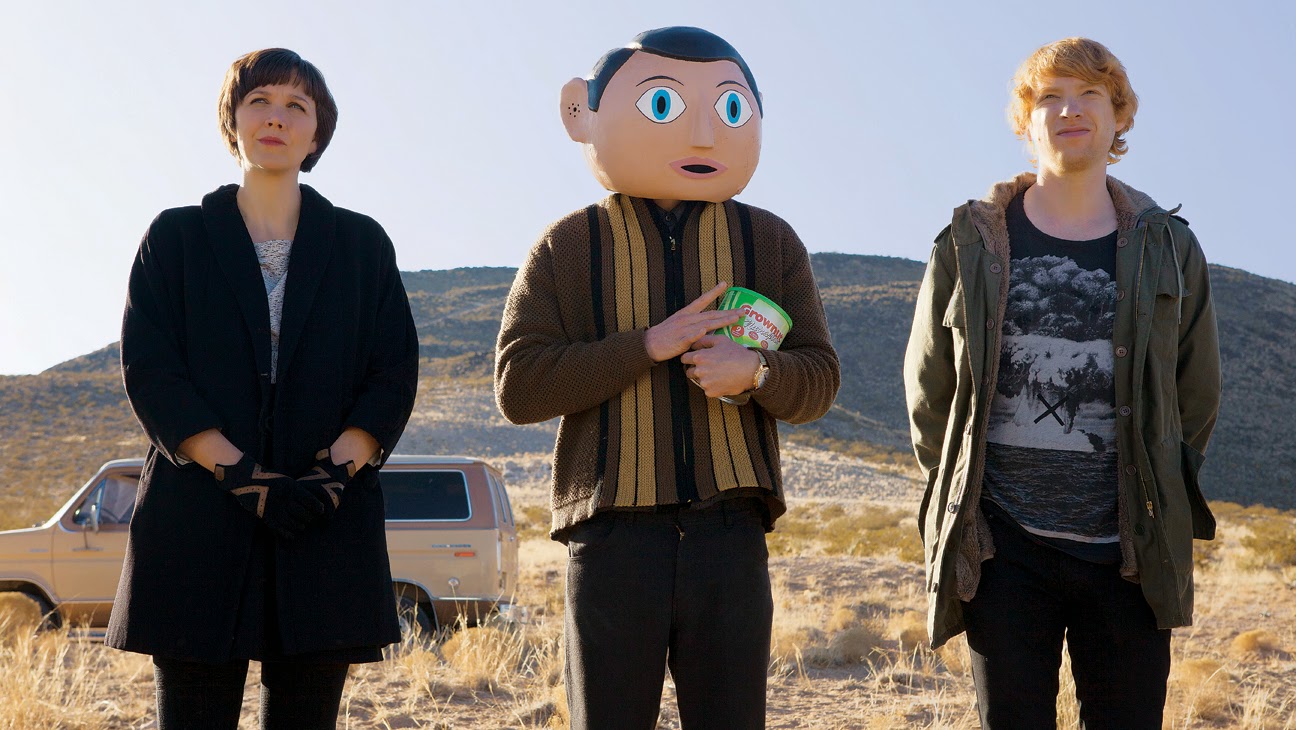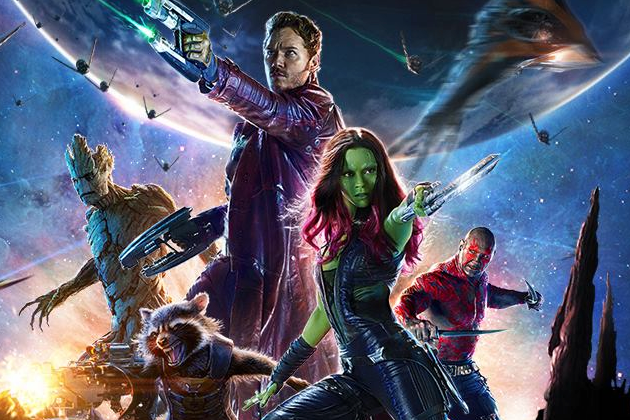This bizarre story starts in a quiet beachside community in the United
Kingdom. A young twenty-something lad named Jon, played by Domhnall Gleeson,
walks the the shoreline, pad and pen in hand, jotting down the various things
he sees in a desperate attempt to force inspiration for song lyrics. A woman
jogs past him in a red coat. “Woman in a red coat jogging!” He hums to himself.
A woman jogs past him in a blue coat. “Woman in a blue coat! Does she know the
woman in a red coat!” Terrible just terrible. Upon chance occurrence he comes
upon a man attempting to drown himself in the ocean. The paramedics are dragging
him away to the ambulance when Jon strikes up a conversation with a few other
people on the beach watching. They know the man. He was their keyboardist. They
no longer have a keyboardist for their gig tonight. I play keyboard, says Jon.
Okay, be at the stage door at 9pm. The group gets in their van and leaves.
Jon shows up at 9pm. He is instructed to play three chords and that’s
it. The crowd is non-existent. One bandmate, a surly looking woman named Clara,
played by Maggie Gyllenhaal, is playing a theremin of all things. And then
there is Frank, played by Michael Fassbender. He walks onto the stage in a
wetsuit and a big fake paper mache head. They start in on the first song. It
sounds absolutely strange. Frank sings in a deep voice and makes muscular
robotic stage moves. Clara’s theremin has an electric short and sparks fly. She becomes
angry, pushes over her instrument and storms out cursing. The drummer and
guitar player follow leaving only Frank standing perfectly still and staring
intently at Jon. Well, maybe, you can’t tell because Frank has a big fake head
on. Then Frank leaves the stage too. The entire thing lasts less than a minute.
What an act!
There is a concept in stand-up comedy called the ‘Comedian’s comedian.’
This was generally not the most successful or even the funniest comedian on the
scene, but it was the type of comedian that other comedians would come out to
see because they were doing something really edgy, exciting, and new. And
Frank’s band is that. They are on a completely different wavelength and could
not care less about connecting with any sort of audience. Jon is invited the
next day for something big. He is excited and is picked up by the band. First
thing he notices: Frank still has his big fake head on. Apparently he never
takes it off, ever. Second: they are not going to a big gig. They are going to
a remote cabin in the Ireland wilderness to take as long as it takes to record
an album. Jon tries to explain that he told his boring office job that he would
be back by Monday. ‘okay,’ is the reaction. Jon stays.
The character of Frank is a fascinating masterwork of acting by Michael
Fassbender. The journey of understanding him oscillates from thinking the man
is insane to thinking he is a well meaning musically inclined wise and nice
person to realizing he is both of those things. Fassbender plays 95% of the movie
without any facial expressions but this hardly matters. His physicality and
voicework is very expressive not only in his movements, which are of an excited
robot variety, but also in his stillness. You do not need to see Frank’s face
to understand when he happy, or inspired, or nervous, or really really scared.
And sometimes he goes ahead and describes his facial expressions in order to be
more helpful. Frank is not the main character of this story (that would be Jon)
but it feels like he is the main character. It is an Oscar nomination worthy
performance, though maybe it is too far out there to be seriously considered as
such.
The main theme of the movie is the education of Jon’s view of musical
expression. He is an ambitious young man who realizes the talent of Frank and
his band and sets out to raise awareness of this band on his blog and Twitter
feed. Jon sees the endpoint of all
their work as a vehicle for rockstardom. Through viral videos of the band
doing really weird shit in the woods he gets a cult following for Frank and a gig
at the South by Southwest music festival. Everybody in the band hates the idea,
but Frank is inclined to do it out of a trust he has placed in Jon. All these
people want to like and love us, he innocently asks. Yes, explains Jon, they
have already seen and liked and will love you. They go to South by Southwest
and all goes to shit. What Jon does not realize is that everything Frank does is
especially personal and he wears the head not as a self-promoting gimmick but
because he is enormously shy to the point of real psychosis. His bandmates
understand this and quit the band before the gig but Jon has to figure it out
for himself and almost destroys Frank in the process.
Where does musical talent come from? Jon bemoans the fact that he did
not have an abusive childhood or a mental illness that would have expanded his
mind in artistic creative directions. No, he realizes in a great scene at the
end of the movie. Frank grew up in a nice home with nice parents and was always
musically inclined. If anything, his illness hinders his artistic expression.
But Jon grew up in a nice house with nice parents too. Why doesn’t he have any
musical talent?


